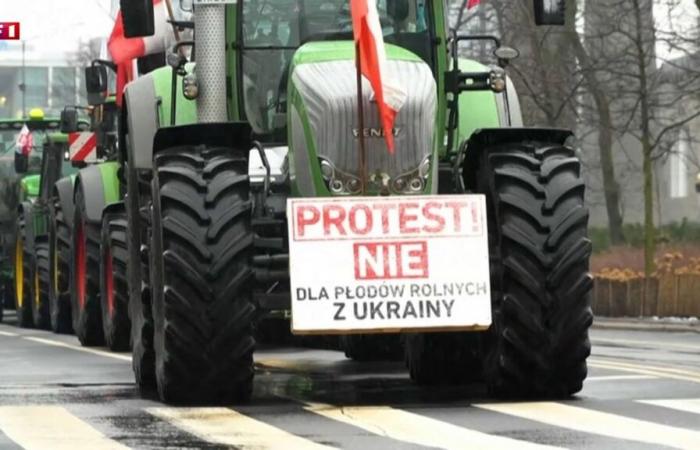Farmers mobilized against Mercosur since Monday have obtained a first symbolic victory.
A debate followed by a vote will be organized in the National Assembly on November 26 on this free trade treaty.
If France disapproves of it, elsewhere in Europe, certain countries are very favorable to it.
Why is Mercosur dividing Europe? This agreement, remember, should lower or eliminate customs barriers with several South American countries. But each country thinks about its interests. In the “for” camp, in green on the map below, Spain and Germany. And on the side of the “against” like France, Italy and Poland.
Take the example of Spain. To feed its pork industry, it needs to import soya and corn. Lifting taxes would allow the sector to obtain supplies at lower costs. This Monday again, the Spanish Minister of Agriculture, Luis Plana, defended this agreement: “It is important to sign new trade agreements to maintain our economic influence. Spain has always been very clear on its position.”
Still in the “for” camp, there is Germany. Its flagship industry, the automobile industry, is in difficulty. It needs new outlets. The South American market would be an unexpected source of growth. “This would generate 10% more exports for the German automobile industry in the four Mercosur countries. Mercosur is still the 4th largest automobile market in the world. analysis Elisabeth Young, automotive expert chez Wave auto.
In the “against” camp, Italy and Poland have the same arguments as France. Farmers fear unfair competition from livestock giants like Brazil and Argentina. Because they are not subject to the same health rules. European countries are therefore divided, so who will ultimately decide? European countries must agree and negotiate with each other so that the Mercosur agreement can one day be ratified.
Belgium






